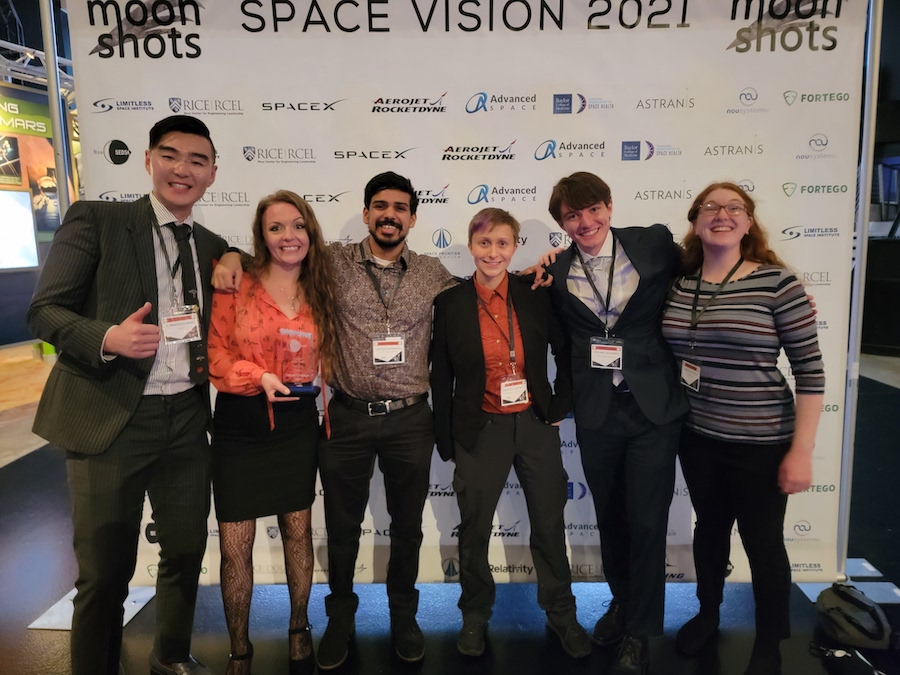Drew Deguchi
January 14, 2022

SEDS, Students for the Exploration and Development of Space, is a burgeoning chapter at the University of Washington, recently winning two awards. SEDS engages members with engineering challenges and competitions, space policy, and networks within the industry. Their work includes competitive space exploration-based team projects, rocket design and building, and research into solutions for spacefaring challenges.
The UW chapter recently won the SEDS Chapter of the Year award (2020-2021) and the SEDS-USA Chapter Diversity award (2019-2020) at SpaceVision21. With over ninety chapters, the Chapter of the Year award considered chapter membership, projects, online presence, national involvement, and chapter diversity.
SEDS at UW proved to be a rapidly growing chapter with membership increasing over 800% from less than 20 to 146 members in one year. In addition, the chapter is involved with the national organization, with at least one representative at every monthly council of chapters meeting.
Their second award, the Chapter Diversity award, considered gender, major, and year diversity. SEDS’ membership spans several majors including engineering, physics, business, and more. The chapter is committed to overcoming gender barriers in the space industry and hopes to ensure equal representation and opportunities for all genders. Their active members are comprised of 21.1% female, 10.1% non-binary or other (including two of the current officer team), and 68.4% male.
A&A SEDS officer, William Lacrampe, commented on the club's success, saying, “SEDS is proud to say that we have helped several members earn their Level 1 High Power Rocketry Certifications. Unfortunately, due to COVID, we did not finish our two-stage rocket, but we plan to finish that this year. Even though it is unfinished, participating members gained valuable experience, and we hope to continue helping any student gain useful experience for the space industry for years to come.”
Their primary projects for this year include a composite rocket project and thrust vectoring capstone. They are also working on finishing the two-stage rocket, level one certs, and a magnetic sail research project. As the chapter was only founded two years ago in 2019, we look forward to watching them continue to take off.